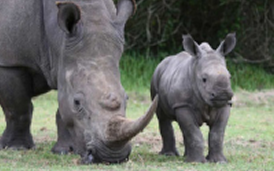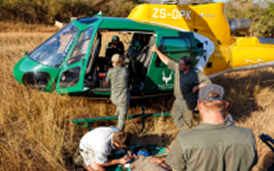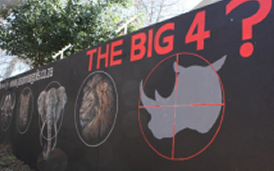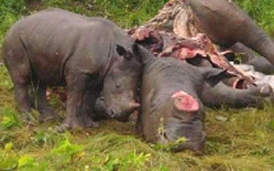FOOTPRINTS
“Take only memories, leave only footprints...” Chief Seattle (c. 1786 – June 7, 1866)
Going on safari provides an experience that lives with one forever. Watching a herd of elephants romp in a dam, seeing a pride of lions preparing for a hunt or catching sight of a mother rhino nudging her little calf along, are magical memories that only Africa can provide. Whilst tourists leave footprints when on safari, the income received from these global travellers helps conservation in the hope that these animals can survive for generations to come.
Although trophy hunting still occurs today - and controversially so - it isn’t the biggest challenge faced by conservation. That challenge is illegal poaching.
At current poaching rates, Rhinos, elephants and lions may be gone within our lifetime www.AWF.org
Sadly, Rhino poaching is a very real issue in South Africa, with the Black Rhino already on the ‘Critically Endangered’ WWF list and the White Rhino on the ‘Threatened’ list. Although there are a number of organisations who are active in anti-poaching unites and or caring for orphaned Rhinos, more help is needed. Whether it is actively trying to close down the illegal trade at source, or increasing anti-poaching units, or monitoring Rhino’s 24/7 by drones, or on foot, more funding, donations and volunteers are required.
The Qui Vado team is active in spreading the word against poaching and informing our clients as best we can, as well as making a donation on behalf of every booking we do. For more information, please do click on the links below, or contact us. Humans have become these precious animal’s greatest threat and together we need to fight against bad and educate, support and protect.
For more information please do click on the links below.












